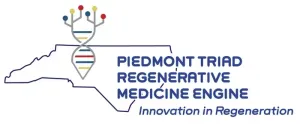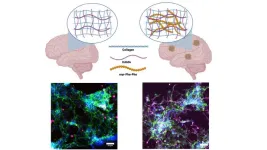(Press-News.org) A study published in Genome Biology opens new possibilities to improve production efficiency in the cattle industry and potentially animal agriculture more broadly. A team of researchers at Baylor College of Medicine, Cornell University and the USDA discovered that, like humans, cattle have CoRSIVs. CoRSIVs are regions of the genome carrying chemical markers on the DNA that provide information that may allow farmers to predict and select desirable cattle characteristics, such as milk production, female fertility and resistance to disease.
“Most people know that each person has a unique set of genes or genome, but less known is that the expression of those genes is regulated by a system of molecular markings on the DNA – epigenetics – that tells different cells in the body which genes to turn on or off,” said co-corresponding author Dr. Robert A. Waterland, professor of pediatrics – nutrition at Baylor’s USDA/ARS Children’s Nutrition Research Center. “We focus on DNA methylation – the addition of methyl groups, the most stable epigenetic mark. DNA methylation differences between people can affect their risk of disease.”
In 2019, Waterland and his colleagues discovered that the human genome contains special regions called CoRSIVs – correlated regions of systemic interindividual variation. At CoRSIVs, levels of DNA methylation differ among people but are consistent across the different tissues within each person. This means that CoRSIV methylation can be measured in easily accessible tissues like blood, providing information on epigenetic regulation in internal organs like the brain, ovaries or liver.
Their earlier work reported nearly 10,000 CoRSIVs in the human genome and proposed that studying these novel regions is a powerful way to uncover epigenetic causes of disease. Indeed, CoRSIVs have already been associated with diverse health outcomes including cancer, thyroid function, cognition, type 2 diabetes, cleft palate, schizophrenia, childhood obesity and autism spectrum disorder.
In the current study, the researchers investigated whether cattle also have CoRSIVs. The team analyzed whole-genome DNA methylation sequencing data on multiple tissues of each of two Holstein cows. “The algorithm we developed indicated that cattle do indeed have CoRSIVs,” said first author Wen-Jou Chang, bioinformatics analyst in the Waterland lab. “Even more exciting, we showed that cattle CoRSIVs share major hallmarks with those in humans, suggesting CoRSIVs are likely present in other mammals. The race is on to find them in other species, such as horses and pigs.”
“We validated our computational findings by laboratory analysis of liver, kidney, brain and blood tissues from 20 different Holstein calves to confirm some of the CoRSIVs Wen-Jou identified,” said Waterland, a member of the Dan L Duncan Comprehensive Cancer Center at Baylor. “This independent validation added great strength to the study.”
Co-corresponding author Dr. Yi Athena Ren, assistant professor in the Department of Animal Science at Cornell University, said, “In recent decades, cattle agriculture has focused on genetic selection to achieve substantial advances in milk production. CoRSIVs may offer a new approach to improve the selection of traits that are desirable to the cattle industry in a sustainable way that reduces cost and environmental impacts.”
“Cattle CoRSIVs, like those in people, are established early in life and are stable across the individual’s life,” Waterland said. “In newborn cattle, methylation patterns across subsets of CoRSIVs may be able to predict future performance. They may be associated with specific desirable traits, like abundant milk production, high female fertility, disease resistance or even heat tolerance, helping select individual calves with traits that will lead to increased productivity.”
The researchers showed that, also as in humans, establishment of DNA methylation at cattle CoRSIVs is influenced by the environment of the early embryo. “This suggests that adjusting embryo culture conditions during assisted reproduction may provide opportunities to tailor agricultural outcomes by epigenetic engineering,” Ren said. “In addition to assisting with the selection of desirable traits, CoRSIVs can help understand disease processes and individual variation among cattle. And, if, as we expect, CoRSIVs are a general feature of the mammalian genome, such agricultural opportunities are not limited to cattle.”
Other contributors to this work include Maria S. Baker, Eleonora Laritsky, Chathura J. Gunasekara, Uditha Maduranga, Justine C. Galliou, Joseph W. McFadden, Jessica R. Waltemyer, Bruce Berggren-Thomas, Brianna N. Tate, Hanxue Zhang, Benjamin D. Rosen, Curtis P. Van Tassell, George E. Liu and Cristian Coarfa. The authors are affiliated with Baylor College of Medicine, Cornell University or the Agricultural Research Service – USDA.
Funding for this project was provided by NIH/NIDDK (1R01DK125562), the USDA/ARS (CRIS 3092-5-001-059), and startup funding and a Schwartz Research Award from Cornell University.
###
END
Big boost for new epigenetics paradigm: CoRSIVs, first discovered in humans, now found in cattle
2024-07-15
ELSE PRESS RELEASES FROM THIS DATE:
Cancer is the biggest health concern among the public, poll reveals
2024-07-15
Late detection biggest worry in relation to cancer diagnosis, with 55% of people wanting to see future advances in early cancer detection
Public overwhelmingly support use of AI to tackle cancer
43% of people recognise major impact universities can have on reducing deaths from cancer
Cambridge University partnering with NHS to build revolutionary new Cambridge Cancer Research Hospital
Two-thirds of the public say they are very or somewhat worried about being told they have the disease – higher than ...
Doctors suffering burnout need compassion not blame, says top GP
2024-07-15
Doctors, nurses and other healthcare staff suffering burnout should be shown compassion and not blamed for being unwell, according to a leading GP.
Clare Gerada says employers often treat physicians as ‘naughty schoolchildren’ when they go sick or suffer mental health problems. Professor Dame Gerada, past president of the Royal College of General Practitioners (RCGP), is calling for more comprehensive guidance that focuses on ‘kindness’ and ‘sensitivity’.
The doctor, who helped found mental health charity, Doctors in Distress, addresses the need for major reform in a new book aimed at reforming care for doctors and nurses ...
Study on post-COVID-19 condition: Which factors have an impact on the risk
2024-07-14
Early on during the coronavirus pandemic, there were reports of cases of persistent post-infection symptoms. The World Health Organization (WHO) refers to such new or persistent symptoms twelve weeks after a corona infection that cannot be explained by other causes as a post-COVID-19 condition. In a recent study, scientists led by the University Medicine Halle evaluated the information from 109,707 participants in the German National Cohort (NAKO Gesundheitsstudie) on their self-reported health status with respect to post-infection symptoms. The survey took place in autumn 2022, in retrospect of the pandemic.
At the time of the survey, more than 80 percent of respondents had ...
Artificial intelligence outperforms clinical tests at predicting progress of Alzheimer’s disease
2024-07-13
Cambridge scientists have developed an artificially-intelligent tool capable of predicting in four cases out of five whether people with early signs of dementia will remain stable or develop Alzheimer’s disease.
The team say this new approach could reduce the need for invasive and costly diagnostic tests while improving treatment outcomes early when interventions such as lifestyle changes or new medicines may have a chance to work best.
Dementia poses a significant global healthcare challenge, affecting over 55 million people worldwide ...
ReMDO announces inaugural Piedmont Triad Regenerative Medicine Engine Ecosystem Summit in Winston-Salem, North Carolina
2024-07-12
Winston-Salem, North Carolina – July 12, 2024 - The RegenMed Development Organization (ReMDO) invites researchers, industry and academia to the inaugural Piedmont Triad Regenerative Medicine Engine Ecosystem Summit (The Summit) on Monday, August 12th in Winston-Salem, North Carolina. Registration is open to new and current partners, with required onboarding for prospective organizations to be completed by August 12. The summit will consist of speaker sessions, discussion panels, breakouts, and networking events with complete details ...
HarvestHub app tackles supply chain, food insecurity issues
2024-07-12
The COVID-19 pandemic infiltrated almost every aspect of society and life in 2020, even in ways people wouldn’t have immediately expected. Stores that typically have no problem stocking shelves were struggling to keep pace with the sudden demand for cleaning supplies along with everything from toilet paper to Sriracha chili sauce.
While these issues aren’t as devastating as the larger health ramifications, they did shed new light on supply chain weaknesses and how that system adapts to rapid and vast market shifts. Factory closures ...
Mathematics outreach program awarded Dolciani grant
2024-07-12
Two years after launching a new mathematics outreach program, a team of Texas A&M University professors has been awarded a Dolciani Mathematics Enrichment Grant to support their program's efforts to promote math enrichment for high school students.
The Program for Research in Mathematics (PReMa) was established in 2022 by four members of Texas A&M’s Department of Mathematics: Dr. Sherry Gong, Dr. Wencai Liu, Dr. Kun Wang and Dr. Zhizhang Xie. The program, directed by Wang, targets high school students living in Texas and neighboring states. Designed to cultivate a deep appreciation and understanding of advanced ...
Groundbreaking study reveals insights into Alzheimer's disease mechanisms through novel hydrogel matrix
2024-07-12
Los Angeles, California - May 20, 2024 - Researchers at the Terasaki Institute for Biomedical Innovation (TIBI) have unveiled a pioneering study shedding light on the intricate mechanisms underlying Alzheimer's disease (AD). The study, titled "Effects of amyloid-β-mimicking peptide hydrogel matrix on neuronal progenitor cell phenotype," represents a significant leap forward in understanding the interplay between amyloid-like structures and neuronal cells.
Led by Natashya Falcone and co-first authors Tess Grett Mathes and Mahsa Monirizad, the research team delved into the realm of self-assembling ...
Study examines urban forests across the United States
2024-07-12
In recent years, tree-planting campaigns have been underway in the United States, especially in cities, as part of climate mitigation efforts.
Urban forests can help improve air quality, generate cooling effects, and provide green spaces for outdoor recreation while also serving as an ecological habitat.
Just last year, the U.S. Forest Service announced a $1 billion campaign to expand access to trees and green spaces throughout the country, including in cities.
But a new Dartmouth-led study finds that some areas within urban forests in the U.S., may be more capable than trees growing around city home lawns in adapting to a warmer climate.
The findings are published ...
2023 Rolling Hills Estates landslide likely began the winter before
2024-07-12
Key takeaways
Landslides triggered by intense rainfall can sometimes be predicted along with incoming storms, but dry-season landslides often take people by surprise.
The July 2023 Rolling Hills Estates landslide that destroyed 12 homes seemed to come out of nowhere, but new research shows it began as early as December 2022.
Researchers are developing a database that will enable scientists to plug in new data to monitor potential landslides in real time and possibly predict them.
Californians are familiar with landslides that occur around storms, when saturated soil and ...


